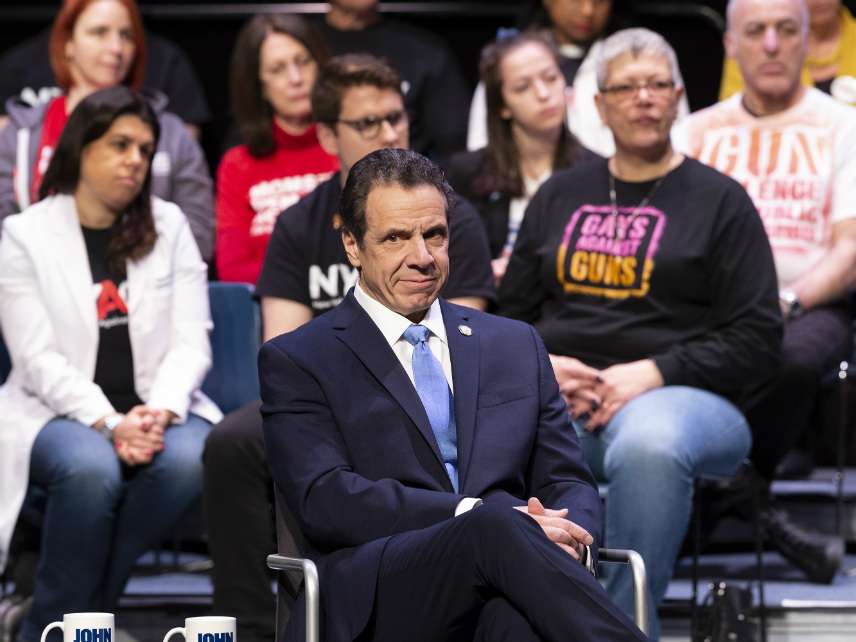New York's $175 Billion State Budget Includes Spending Hikes, 'Mansion Taxes,' and Plastic Bag Bans
The Empire State's new budget grows government spending and red tape.

The New York legislature passed a $175 billion state budget for the upcoming fiscal year over the weekend. It bumps spending on schools and health care, cuts spending on welfare and transportation, and includes several tax and regulatory measures, many of which will make libertarians cringe.
The state's economic development efforts are the biggest beneficiary of the new budget, getting a 10 percent funding bump. (Spending as a whole, by contrast, went up a smaller 2 percent.) Much of that is earmarked for the Empire State Development Corporation, which distributes various state tax credit and grant programs. Last year it spent $1.4 million grant on a theater project that created a whole six jobs.
Health and school spending, which together make up some 60 percent of the budget, got small increases of 3.7 and 2.5 percent, respectively. Social welfare and transportation spending both saw cuts of about 5 percent.
Alongside the new spending are a number of new regulatory policies.
Top of the list is a congestion pricing scheme that charges drivers a toll for entering Manhattan's central business district. How much these tolls will be, and who they'll apply to, will be determined by the state's Metropolitan Transportation Agency and a new transportation mobility commission—a setup that's sure to be fraught with political considerations.
In theory, congestion pricing is a sensible policy. Several cities, including London and Stockholm, have used it successfully to reduce gridlock in their downtowns. Ideally, the revenue would be spent on repairing roads or building new lanes, so that drivers gain some benefit from the tolls they'll end up paying. New York's version insteads earmarks funds for subway repairs and regional rail spending.
Also included to help fund New York's crumbling transit system are new rules for collecting internet sales taxes and a new "progressive mansion tax" on the sale of properties valued over $25 million, which together are supposed to raise nearly $700 million for the subway.
The budget also creates a new state commission that will have the power to award up to $100 million a year to political campaigns.
On the regulatory side of things, the 2020 budget includes new rules for limousines, passed in response to a deadly limo crash in upstate New York last year, that left 20 people dead.
The new budget also bans plastic bags, and it allows counties to impose a 5 cent fee on the paper bags. Money from the fee will be spent purchasing reusable bags for low-income shoppers or will otherwise be deposited in the state's Environmental Protection Fund. This makes New York the second state in the union, after California, to ban plastic bags.
On the bright side, the budget includes several criminal justice reforms—we'll have more on those in an upcoming post—and a 2 percent cap on property taxes. The latter two items are some of the few bright spots in a budget that manages to shift even more money from New York taxpayers to an already bloated state government.
Rent Free is a weekly newsletter from Christian Britschgi on urbanism and the fight for less regulation, more housing, more property rights, and more freedom in America's cities.


Show Comments (53)